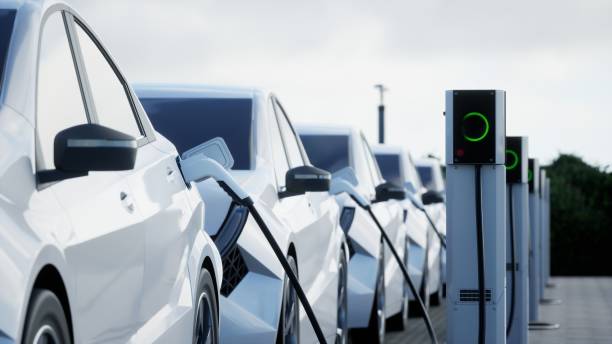Electric Cars VS Gas cars, which is worth the investment? As the automotive landscape continues to evolve, many drivers are faced with a pivotal question: should I invest in an electric vehicle (EV) or stick with a traditional gas-powered car? Imagine this scenario: you’re at a dealership, contemplating your next big purchase. You want a vehicle that not only fits your lifestyle but also makes financial sense.
With electric cars gaining traction and gas prices fluctuating, understanding the total cost of ownership over time is crucial, hence finding yourself comparing both – Electric cars VS Gas cars! Let’s dive into the key factors that differentiate electric cars from gas cars and explore how these choices impact your wallet in the long run.

Table of Contents
The Initial Purchase Price
When considering the cost of ownership – looking at Electric cars vs Gas cars, the first thing that comes to mind is the initial purchase price. Generally, electric vehicles tend to have a higher upfront cost compared to their gasoline counterparts. For instance, as of 2024, the average price of an electric car is about $53,000, while gas cars average around $50,200. However, many EVs qualify for federal tax credits and state incentives that can significantly reduce this initial investment.
Imagine buying a new electric vehicle and receiving a $7,500 federal tax credit—suddenly, that higher sticker price doesn’t seem so daunting. As more states introduce additional incentives for EV purchases, the gap between initial costs is narrowing.
Fuel Costs: Electricity vs. Gasoline

One of the most significant factors in determining the total cost of ownership is fuel costs. Electric cars vs Gas Cars – EVs are known for their efficiency. Charging an EV at home typically costs between $6 and $18 for a full charge, depending on electricity rates and charging habits. In contrast, gas prices can vary widely due to market fluctuations.
Consider this: if you drive an electric vehicle like the Tesla Model 3, you could spend significantly less on fuel compared to a similar gas-powered vehicle. While charging at home is generally cheaper, public charging stations also offer savings compared to filling up at a gas station.
Maintenance Costs
Another area where electric vehicles shine is in maintenance costs. With fewer moving parts than traditional gas cars—no oil changes, spark plugs, or engine tune-ups—EVs often require less frequent servicing. Studies show that EV owners can save about 50% on maintenance costs compared to those driving gas vehicles.
Imagine not having to worry about regular oil changes or engine repairs; instead, your biggest maintenance concern might be ensuring your tires are properly inflated! While battery replacement can be a significant expense (ranging from $5,000 to $15,000), modern EV batteries typically last between 8 to 10 years, and many manufacturers offer warranties covering this period. Honestly! There are wide ranges of things to consider when it comes to Electric cars vs Gas cars.
Total Cost of Ownership Over Time

When evaluating between Electric cars vs Gas cars,, it’s essential to look beyond the initial purchase price and consider the total cost of ownership (TCO) over time. The TCO includes various ongoing expenses such as fueling costs, maintenance costs, insurance premiums, and depreciation.
Breaking Down the Costs
Fueling Costs
- Electric vehicles are generally cheaper to fuel over their lifetime due to stable electricity prices compared to volatile gasoline prices.
- Over a typical 7–15 year period, studies suggest that electric vehicles can save drivers between $7,000 and $11,000 compared to gas-powered cars primarily due to lower fueling and maintenance costs.
Maintenance Costs
- As mentioned earlier, EVs have fewer moving parts resulting in lower labor costs for repairs.
- Gas cars require regular maintenance such as oil changes and emissions tests which add up over time.
Depreciation – Electric cars vs Gas cars
- Electric vehicles may depreciate faster than gas-powered models due to rapid advancements in technology; however, premium models like the Tesla Model 3 tend to hold their value better.
- Gas-powered vehicles typically have steadier depreciation rates but may not retain value as well as some newer EVs with advanced features.
The Regional Factor

It’s important to note that location plays a significant role in determining ownership costs. For example, charging an EV can be more expensive in states like California due to higher electricity rates but cheaper in states like Texas or Florida where energy prices are lower. Similarly, insurance premiums can vary based on regional factors and vehicle types. Again, there are wide ranges of things to consider when it comes to Electric cars vs Gas cars.
Imagine living in a state with generous tax incentives for electric vehicles; you might find that owning an EV not only saves you money on fuel but also offers significant savings through state rebates and lower insurance rates.
Conclusion
The debate between electric cars vs gas cars continues to evolve. While electric vehicles may have higher upfront costs, their long-term savings on fuel and maintenance make them an attractive option for many drivers.
So whether you’re considering making the switch to an electric vehicle or sticking with traditional gasoline engines, it’s essential to weigh all factors carefully. Understanding the total cost of ownership will empower you to make informed decisions that align with your budget and lifestyle—ultimately leading you toward a more sustainable future on the road!